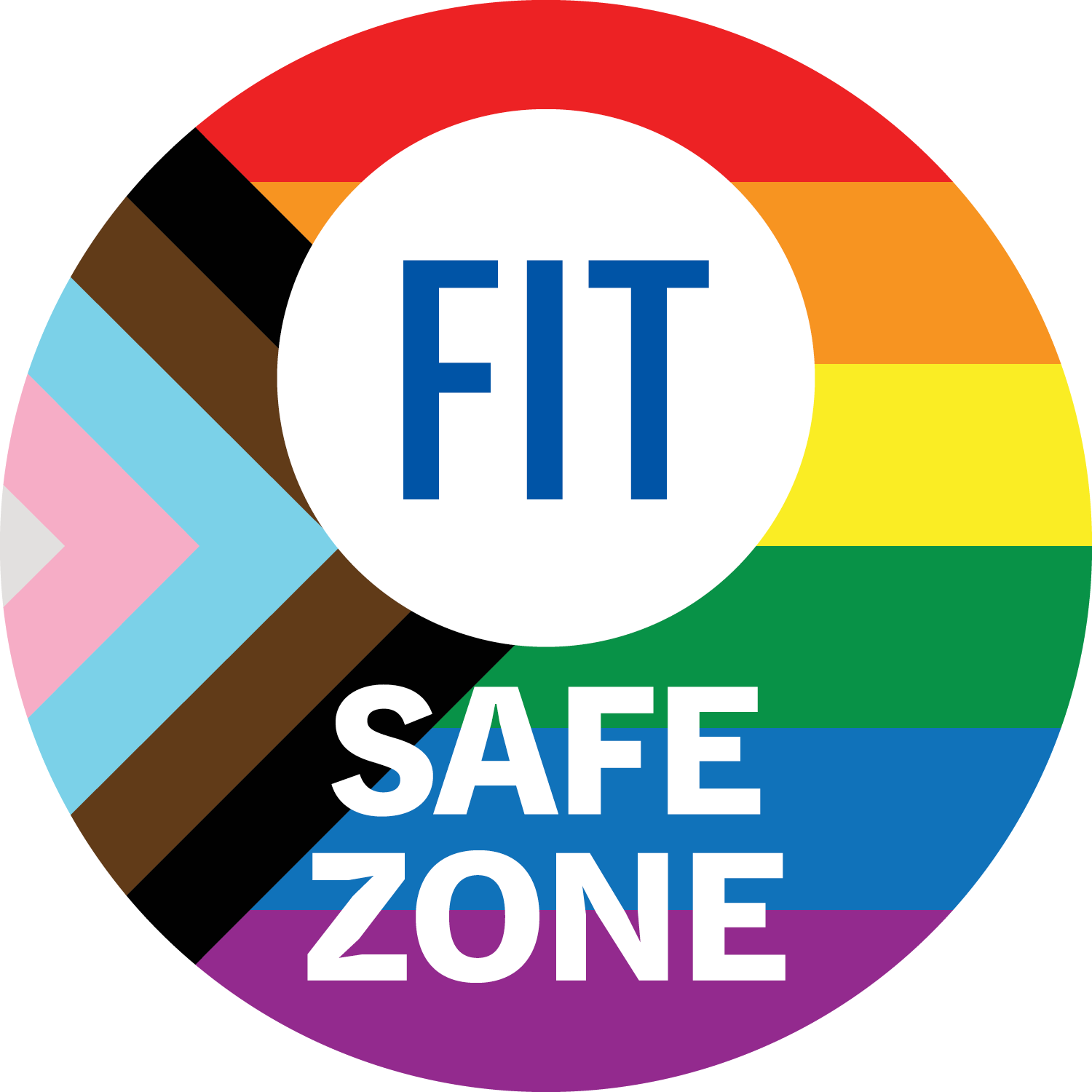Safe Zone Training
 The Safe Zone program furthers FIT's strategic goal of committing to a culture of
student centeredness, by offering additional support and resources to assist students
in their life-skill development. As an inclusive campus environment, it is imperative
to understand the diverse FIT community. Lesbian, gay, bisexual, transgender, queer,
questioning, and ally training is integral to the continued inclusion of all groups
and fostering a deeper understanding of differences throughout the FIT community.
The Safe Zone program furthers FIT's strategic goal of committing to a culture of
student centeredness, by offering additional support and resources to assist students
in their life-skill development. As an inclusive campus environment, it is imperative
to understand the diverse FIT community. Lesbian, gay, bisexual, transgender, queer,
questioning, and ally training is integral to the continued inclusion of all groups
and fostering a deeper understanding of differences throughout the FIT community.
You only need to attend one session; however, certification requires that you attend all three hours.
For More Information: Contact jocelin_engel@fitnyc.edu
About Safe Zone Training
Training includes the following:
- an opportunity for participants to reflect on their earliest messages regarding LGBTQ+ community
- terminology review
- understanding what of it means to identify as gender queer/non-conforming or a transgender person
- how to support someone in the "coming out" process
- best practices for being an ally to LGBTQ+ students and colleagues
- ways to make your classroom or office more inclusive
Those who participate in this free professional development opportunity will receive a "Safe Zone" symbol like the one above to display in their office. This symbol indicates that you are an ally who has been properly trained on LGBTQ issues, terminology, and ways to support those in need.
More than 800 FIT faculty, staff, and student leaders have completed Safe Zone training to date.
Important Facts
The Policy Institute of the National Gay and Lesbian Task Forces Campus Climate for Gay, Lesbian, Bisexual, and Transgender Survey (Rankin, 2003) found that 36% of LGBT respondents had experienced harassment within the past year, with 89% of this harassment being derogatory remarks (79% of which came from fellow students).
To diminish the discrimination of LGBTQ students, many colleges and universities have established Safe Zone programs. More than 200 schools throughout the United States (including NYU, Cornell, SUNY Potsdam) have implemented a Safe Zone training program.